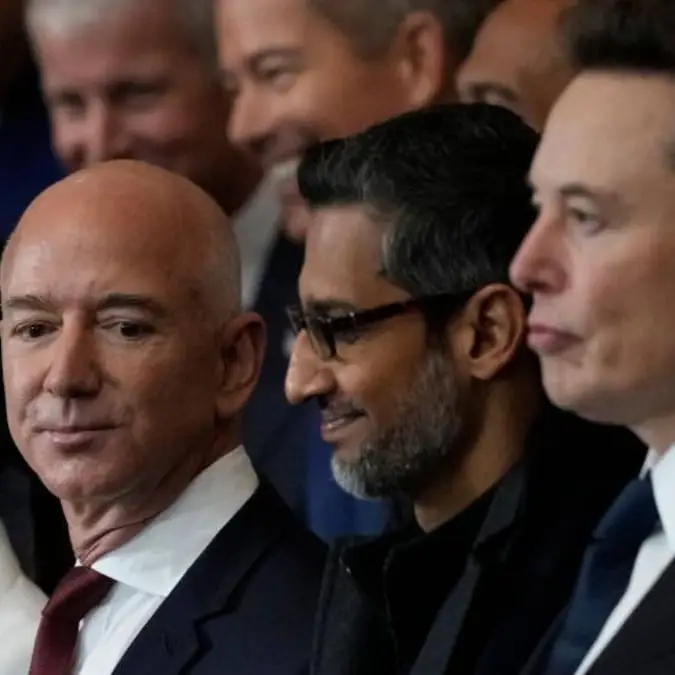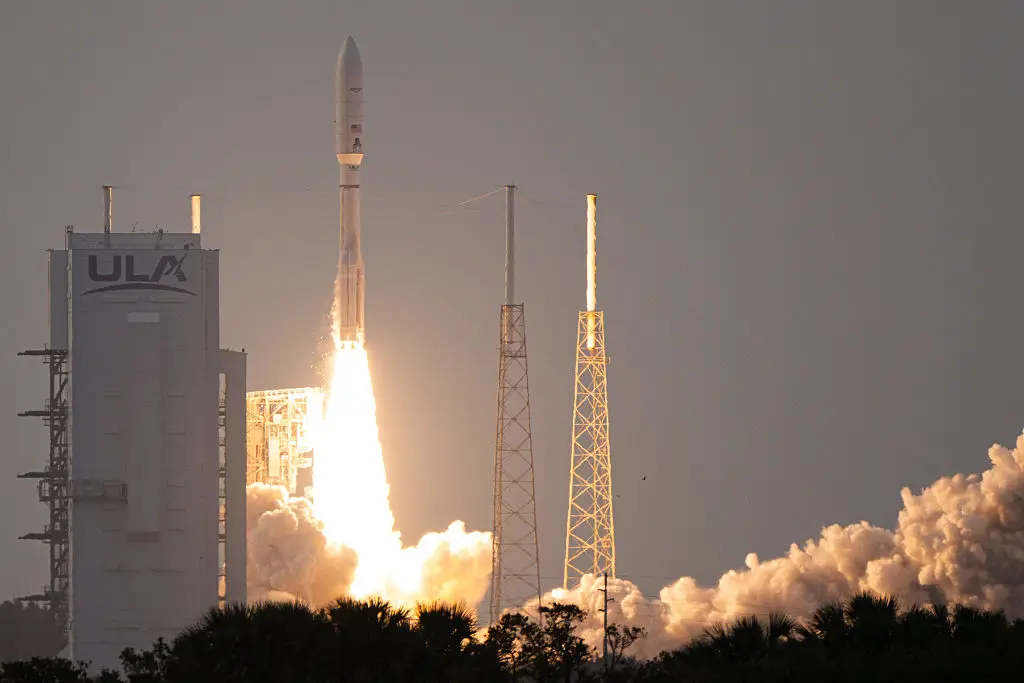
While it looked like Elon Musk and Jeff Bezos had put their past differences behind them, it sounds like space isn't big enough for both of them.
As the two richest men in the world, they've been jostling for control of space with their Blue Origin and SpaceX companies.
Still, as one targets space tourism and the other circles space exploration, there should've been plenty of room for them to carve themselves a nice chunk of the cosmos.
Now, Jeff Bezos could be opening up old wounds, as his latest venture muscles in on Elon Musk's territory. Amazon has confirmed that it launched its first batch of Project Kuiper satellites into low-Earth orbit on April 28, marking the start of its broadband internet constellation. 3,236 satellites are due to make up Project Kuiper, with this launch of 27 being part of an initial phase (totalling 80) that will potentially rival Musk's Starlink.
Advert

After an earlier April 9 attempt was called off due to bad weather, Amazon finally reached for the stars with Project Kuiper. Posting on X, Amazon CEO Andy Jassy gushed: "While this is the first step in a much longer journey to launch the rest of our low Earth orbit constellation, it represents an incredible amount of invention and hard work. Am really proud of the collective team.”
Amazon's $10 billion effort was first touted in 2019, hoping to bring global internet to remote areas.
Time is against the tech giant due to a US Federal Communications Commission deadline of deploying half of its 3,236 satellites before the middle of 2026, although Amazon is expected to seek an extension.
While Jassy might be happy, we're not sure Elon Musk will be.
Bezos and Musk previously butted heads over the 2024 election, while reports of a feud go all the way back to a fateful tour of a SpaceX facility back in 2004.
It's true that they've been more cordial recently, with Musk congratulating Bezos over a successful Blue Origin launch, and the Bezos-owned The Washington Post pulling an advert that called for Musk to be fired from the Department of Government Efficiency.
Starlink has just rolled out its game-changing Direct to Cell capabilities, so it's no surprise that there are accusations that Project Kuiper is treading on Musk's toes.
Added to this, Starlink has upped its launches to put over 8,000 satellites in orbit since 2019, recently celebrating its 250th dedicated launch, and hitting at least one mission a week.
Bezos is keen to downplay the idea of rivalry, telling Reuters in January how there's an 'insatiable demand' for the internet: "There's room for lots of winners there. I predict Starlink will continue to be successful, and I predict Kuiper will be successful as well...
"It will be a primarily commercial system, but there will be defense uses for these LEO constellations, no doubt."
There are other potential problems, as The Verge warns that things could be getting pretty crowded up there. Amazon and SpaceX are joined by the UK-based OneWeb (merged with France's Eutelsat in 2023), with the Chinese government-backed Guowang mega constellation, and China's Thousand Sails project that hopes to put 15,000 satellites in LEO.
We've already been told about how Kessler syndrome could soon start interfering with everything from space travel to the internet. For the time being, Amazon, SpaceX, and their rivals don't seem too concerned as they race to fill the stars with their satellites.